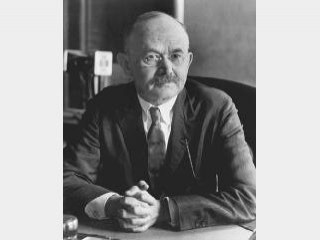
Benjamin Barr Lindsey biography
Date of birth : 1869-11-25
Date of death : 1943-03-26
Birthplace : Jackson, Tennessee
Nationality : American
Category : Famous Figures
Last modified : 2011-01-12
Credited as : Jurist and reformer, he founded the juvenile court,
Benjamin Barr Lindsey, American jurist and reformer, founded the juvenile court. His arguments favoring a loose construction of marriage vows helped modernize understanding of the implications of marriage.
Benjamin B. Lindsey was born in Jackson, Tenn., on Nov. 25, 1869, the son of a Confederate soldier. He attended Southwest Baptist University. Financial necessity forced him to go to work. In despair over his slow progress in his law studies at Denver, Colo., he attempted suicide, but his gun misfired. He was admitted to the bar in 1894 and was soon involved with cases for the poor and young. Because of his Populist sympathies and democratic ideals he distrusted Colorado politics, but his services gained him the position of public administrator and guardian in the county court. In 1901 he was elected county judge.
Soon Lindsey began his long battle on the behalf of children, sponsoring laws that shielded them from criminal prosecution. He also created the Juvenile Court of Colorado, which in 1907 became the Juvenile and Family Relations Court—a major achievement of the Progressive era.
Lindsey engaged continually in propaganda and political action to advance his social causes. He traveled widely, urging the creation of humane laws and better family counseling services. In his work he was assisted by his wife, Henrietta. He recognized that crime was a product not only of poverty and ignorance but of corporate determination to resist child-labor and child-care laws. He also understood the need for measures to assist wayward children and to aid needy or deserted mothers.
Lindsey's increasing radicalism led him to denounce the negative influence of big business in The Beast and the Jungle (1910), written with a collaborator. His fame was spread by such articles as Lincoln Steffens's "Ben Lindsey, the Just Judge." Lindsey also contributed to Edwin Markham's Children in Bondage (1914).
Although Lindsey supported America's entry into World War I, he continued to seem radical to Denver conservatives. His notoriety increased when he advocated "companionate marriage, " which was carelessly identified as "free love." In fact, Lindsey, in The Companionate Marriage (1927), written with Wainwright Evans, had urged legal marriage, birth control, counselling, and divorce if all else failed. Nevertheless, his court was taken from him, and in 1929 he was debarred from practice in Colorado.
The next year, in New York, Lindsey was publicly denounced by a Catholic bishop and arrested for protesting the false statements that had been made respecting his beliefs. Finally, Lindsey became a lawyer in Los Angeles, Calif., where he was elected judge of the supreme court. He died on March 26, 1943.
Lindsey's The Dangerous Life (1931), a collaboration with Rube Burrough, provides autobiographical data and polemics on his causes. Background is in Lincoln Steffens, Upbuilders (1909; repr. 1968).
















